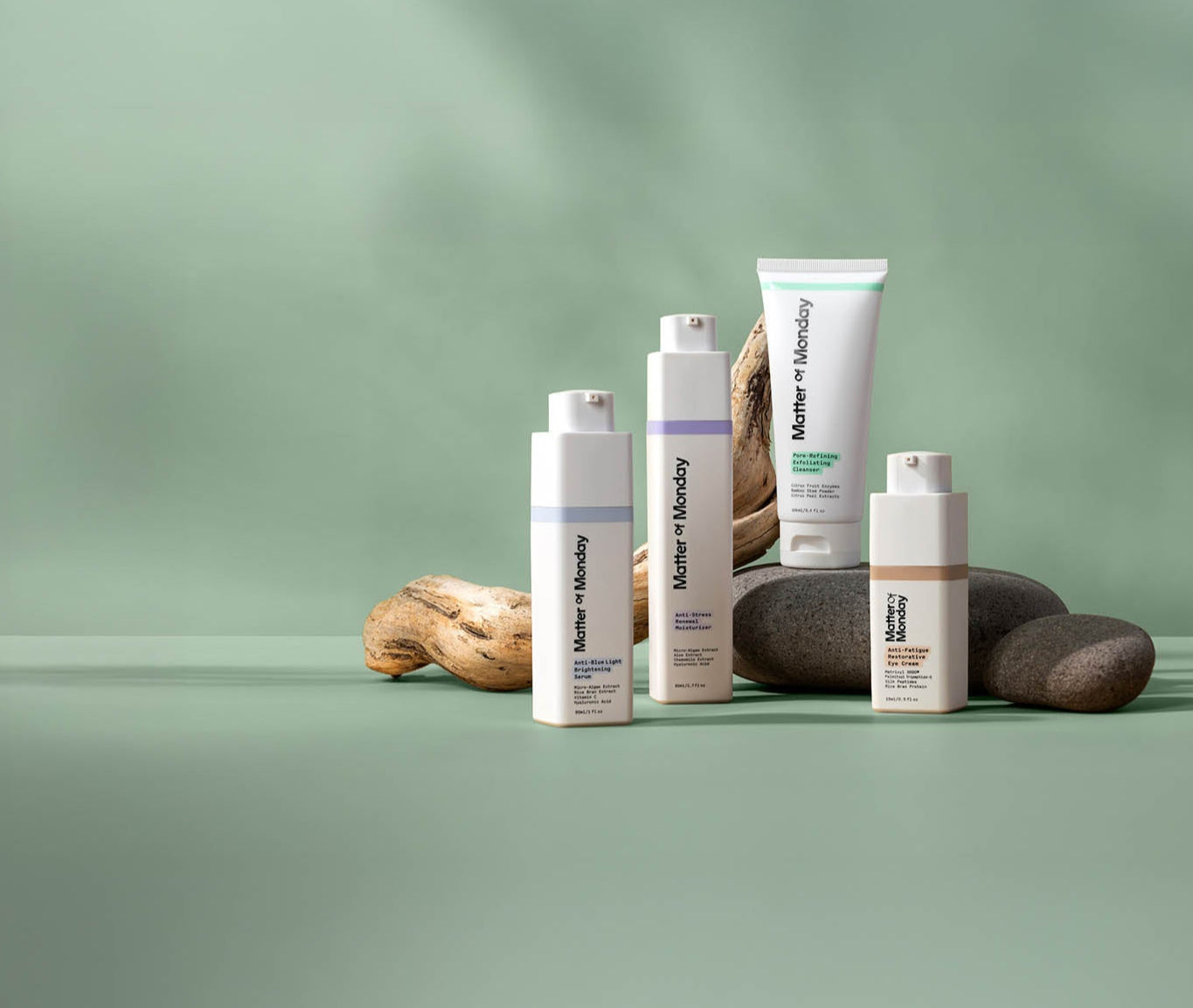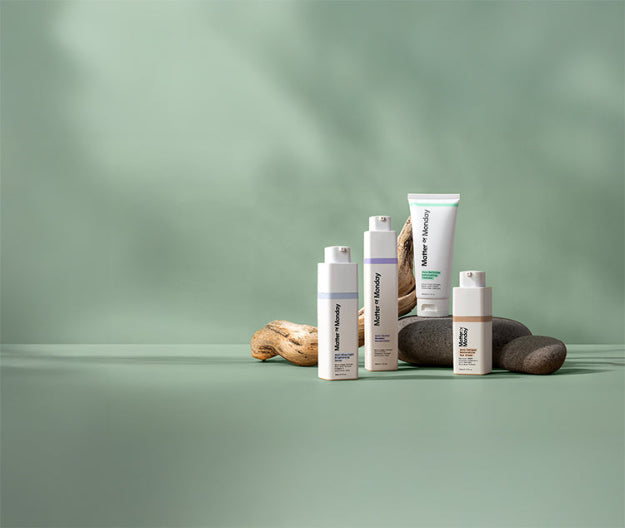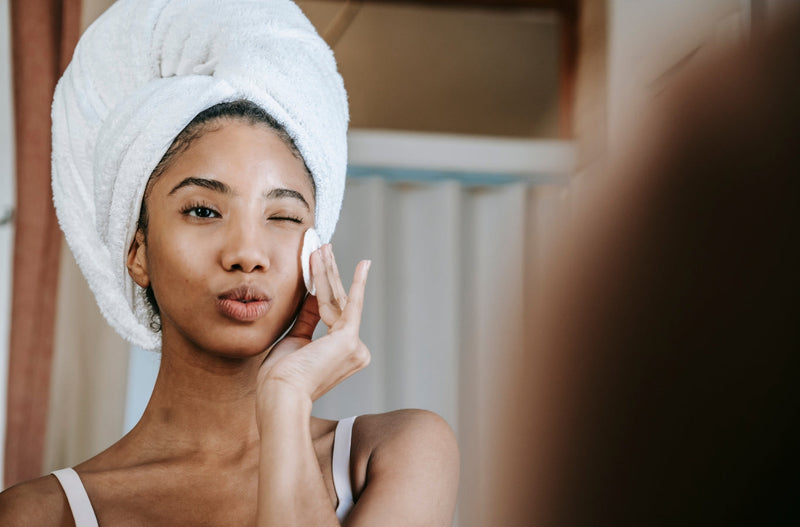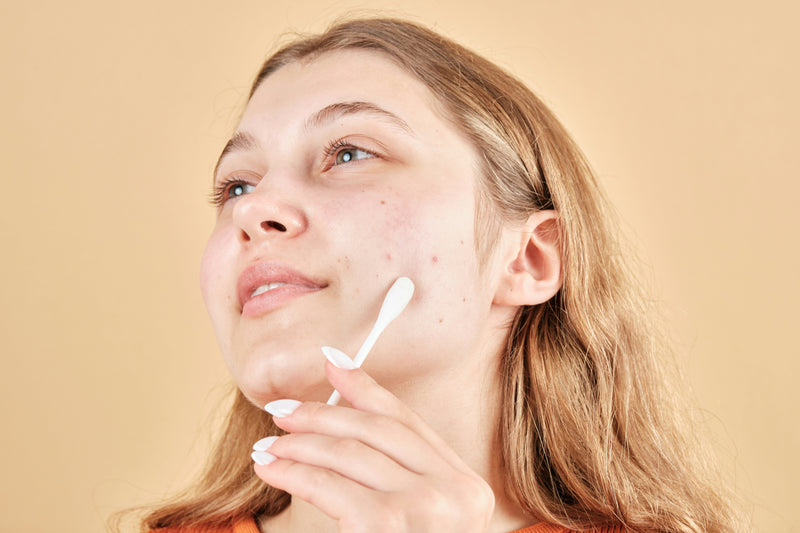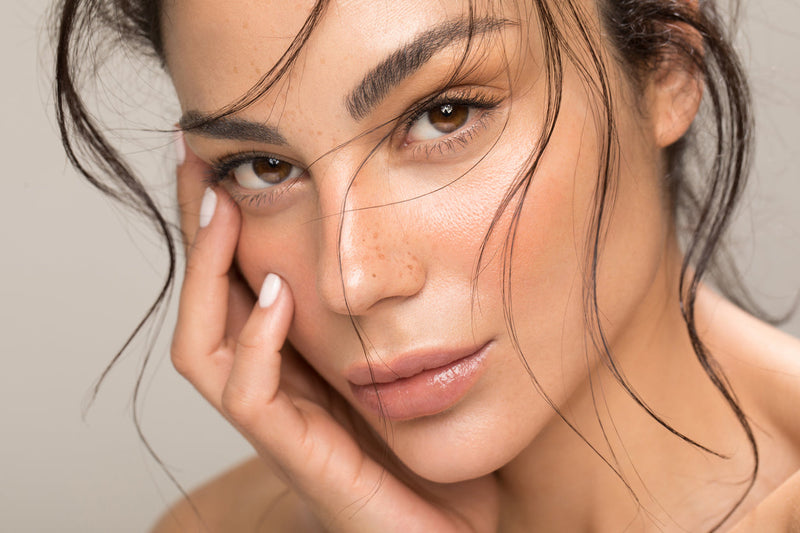Remember when our biggest skincare concern was forgetting to take off our makeup after a night out or forgetting to put on sunscreen when going outside? Those were simpler times! Now we're dealing with something that sounds like it belongs in a sci-fi movie: High Energy Visible (HEV) light, aka blue light.
What Is Blue Light and Where Does It Come From?
Blue light is a high-energy visible light found in both natural and artificial sources. Sunlight is the natural source. However, modern life has significantly increased your exposure through artificial sources like smart phones, and computers, even LED lights. While we often think about ultraviolet (UV) rays as the principal harm to our skin from sun exposure, research found that blue light actually penetrates deeper than UV rays, triggering oxidative stress, damaging your collagen, and contributing to premature aging.
How Does Blue Light Penetrate the Skin?
Blue light penetrates deeper into your skin than UV rays. Unlike UVB, which affects the surface, blue light can reach the dermis. This layer contains collagen, elastin, and other structures responsible for your skin's firmness and elasticity. Therefore, prolonged exposure can have a noticeable impact over time.
The Connection Between Blue Light and Premature Aging
Blue light plays a significant role in premature aging. When blue light penetrates your skin, it can cause oxidative stress. This stress triggers the release of free radicals. Free radical weakens collagen and elastin, the proteins that keep your skin firm and smooth. As a result, you may notice the early appearance of wrinkles, fine lines and sagging skin. Additionally, blue light triggers inflammation, which can worsen these effects and create an uneven texture.
Hyperpigmentation is another concern tied to blue light. It stimulates melanin production, especially in deeper layers of your skin. This can darken existing spots or create new dark spots or patches, making your skin tone appear uneven.
However, the effects don’t stop at aging. Blue light also disrupts your skin barrier, making it more prone to inflammation. This can exacerbate conditions like acne or sensitivity, leaving your skin feeling less resilient. Since you’re often exposed to blue light from screens or artificial lighting, these effects can build up over time.
Does Blue Light Worsen Acne?
Blue light can impact your skin in ways that go beyond aging. If you struggle with acne, blue light exposure might make things worse. It can trigger inflammation in your skin, which often plays a big role in acne flare-ups. Over time, this inflammation can lead to redness, irritation, and even deeper breakouts.
Protecting Your Skin from Blue Light Damage
Protecting your skin from blue light doesn’t mean avoiding technology altogether. Instead, it’s about learning how blue light affects your skin and taking steps to minimize damage. . Small changes to your daily routine can make a difference.
-
Screen Time Breaks: It’s easy to lose track of time scrolling or working on screens. Set a timer to remind yourself to take breaks every hour. This will not only help your skin but also refresh your mind. Don’t forget to stretch a little!
-
Invest in Blue Light Blocking Glasses: Consider investing in quality blue light blocking glasses to protect your eyes, especially if your work involves long hours in front of a computer. These glasses can help reduce eye strain and shield your skin from some of the harmful effects of blue light.
-
Get yourself a blue light filter screen protector: (it's like sunglasses for your devices) or download a blue light filter app (your eyes will thank you too)! Your skincare routine and diet also play a role. Incorporating antioxidant-rich products can help combat free radicals caused by blue light exposure. Look for serums or moisturizers with ingredients like vitamin C or niacinamide.
Furthermore, eating foods packed with antioxidants, such as berries or leafy greens, supports your skin from the inside out. These choices can help protect your collagen and reduce inflammation.
-
Use a Blue Light Protection Skincare Product: While some sunscreens may offer minimal protection against blue light by using physical blockers like zinc oxide or titanium dioxide, they are primarily designed to protect from the UV light not specially formulated to block blue light from digital devices. Treat yourself with some skincare products designed to shield your skin from blue light damage.
Look for options that contain ingredients known for their protective properties such as micro-algae. Anti- Blue Brightening Serum from Matter of Monday include Pepha®-Age, a patented ingredient from selective micro-algae, especially for blue light defense and repair, Vitamin C, powerful antioxidant that brightens dark spots, and stimulates collagen and Rice Bran Extract that protects against radiation, repairs skin damage and helps brighten the skin and even the skin tone.
Final Thoughts
Remember, skincare in the digital age isn't about perfection – it's about proactivity and prevention. With blue light exposure being part of modern life, it's crucial to adopt a holistic approach to skincare, one that acknowledges the interplay between our lifestyle, digital habits, and skin health. By being mindful of our screen time and investing in protective skincare, we can effectively combat the effects of blue light and promote a vibrant, youthful complexion.
